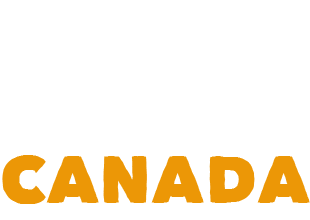SPONSORSHIP WINNERS
UBC Health Sponsorship
UBC Health is committed to equity, diversity, and inclusion and supports efforts to ensure equitable participation in the conference. As a TUFH 2022 partner, UBC Health is pleased to sponsor a number of students and local Indigenous peoples who might not otherwise have the opportunity to attend the conference. UBC Health will cover the conference registration fee, travel, and accommodation.
Here are the six winners of the UBC Health Student Sponsorships with their bios, reasons for sponsorships and what they’ll be presenting at TUFH 2022.
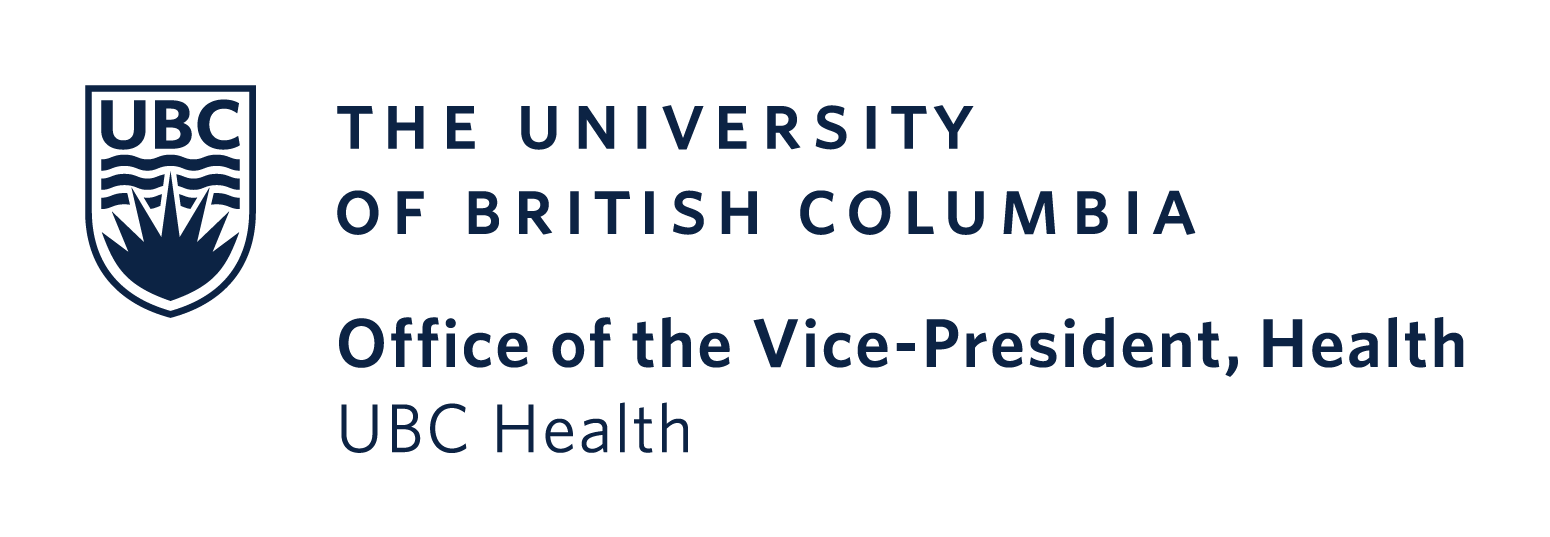
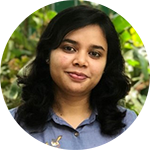
Aabha Singh
Public Health Dentistry, 3rd Year Student, Ramaiah University of Applied Sciences, Bangalore, India
Short Biography
I am a budding researcher and a lifelong learner. Perusing Post Graduation in Public Health Dentistry. Area of interest: Inter-Professional Education. At the national level, I have won awards for poster presentation, story writing, elocution and health education talk. Some of my contributions to society are external monitoring for WHO (IMI 3.0), volunteering for Rotaract Rotary Club, coordinating outreach activities, coordinator-COVID response centre & vaccination centre and coordinating scientific programs.
Why did you need the sponsorship?
It will help me in empowering my academic and career goals by removing the financial barrier. My dream is to interact with experts of IPE from around the globe and get enlightened. This requires exposure to international conferences like TUFH. This would be the most desired form of financial aid to bring me a step closer to my goal of building an IP team at the institution I will work in future.
What will you present at TUFH 2022?
Inter-Disciplinary Community Orientation Program is built to bridge the gap between different professions and develop humane for rural inhabitants among students. TUFH will provide me to share my experience of working with different professions as a team and the experience that I gathered empathetically. TUFH will be a stepping stone for international exposure as well as fulfil my dream.
Oral Presentation TUFH1016
Interprofessional Education (IPE) for Better Oral Health: Together, a step ahead – Students and Facilitator Experience
Interprofessional education (IPE) is an emerging concept in India, which is being practiced in M.S. Ramaiah University of Applied Sciences since 2015. Students from five different health care disciplines, including medicine, dentistry, nursing, pharmacy, and physiotherapy, participated in Inter-Disciplinary Community Orientation Program (IDCOP). These students stayed together for 15 days with facilitators from each discipline to improve interprofessional collaboration and communication skills, improve knowledge and understand the role of different disciplines for patient care. At first, it was a heterogeneous group of students with a mix of all the disciplines with one facilitator from each discipline. Before going to the field facilitators were first trained by expert faculties about the program who later trained the students, using several activities. Each heterogeneous group is allocated one village. Before visiting the village, students are introduced to the village leaders who guide them for further programs. Monsoon is a game (to create empathy towards the rural population) where students role-play as villagers are asked to make certain important decisions of their lives under some hypothetical situations. Students conducted awareness programs, surveys and treatment camps in the allocated village and visited Anganwadi, PHC and community health care center. Later they were also taken to some urban settings like PHC, Mysore Sandle Soap factory and orphanage to understand the functioning of the places and understand the related health issues. The program inculcated different skills, empathy, and respect towards each other resulting in a homogenous group of students at the end of the program.

Cianna Lunan
Bachelor of Medicine, 4th year, University of the West Indies, Jamaica
Short Biography
Cianna Lunan is a 23-year-old Jamaican fourth year medical student and global health advocate attending the University of the West Indies (UWI). Her advocacy focuses on meaningful youth participation, women’s equality, and social accountability in medical education. Cianna is the President of the Jamaica Medical Students Association (JAMSA) and a member of the PAHO Youth for Health Group, and her mandate is the promotion and education of youth on their right to quality health and their place as health stakeholders. While she strives to have an impact on the Jamaican Health System and contribute to LMICs achieving UHC, her broad interests include health policy and health systems.
Why did you need the sponsorship?
My goal is to carve a path for myself in the areas of public and global health advocacy and attending TUFH would contribute greatly to that journey. I intend to utilize what I gain from the conference to help improve my local and global communities. I am currently working on national project proposals in the areas of social accountability and youth health and believe that I can acquire the knowledge, skills, and support to develop impactful projects by attending the conference. My ability to benefit from and participate in TUFH 2022 would not have been possible without the financial support provided through the sponsorship from UBC Health.
What will you present at TUFH 2022?
I am very much inspired by the many youth leaders, faculty, and health professionals who are a part of TUFH who will be coming together to talk solutions to the many issues our global community is facing. The opportunity to interact with and learn from some of the best minds in the field will set the trajectory of my career. I endeavor to contribute to TUFH through my presentation “JAMSA supporting students’ mental health during the pandemic” which will address the role student-led organizations have played in preserving student well-being during the pandemic. The aim is to highlight the importance of meaningful youth engagement at all decision-making levels.
Oral Presentation TUFH1183
JAMSA Supporting Students’ Mental Health During the Pandemic
Background: The Jamaica Medical Students Association is committed to molding the future of global health by helping medical students develop not only as great doctors but socially aware and socially accountable individuals. This responsibility includes ensuring the well-being of the students we represent. Medical students worldwide are experiencing medical training during a time of great anxiety and stress. Method: The Medical Education arm of JAMSA over the has developed its Burnout and Wellness program with the mission to support students’ mental health. During the pandemic the program has been upscaled to host more events to meet the needs of students. The objective is to find creative ways to help students cope with the effects of the pandemic on their mental health. JAMSA engaged students by developing mental health awareness campaigns, hosting stress management workshops, open space discussions and game nights to help students stimulate positive ways of managing burnout and stress. JAMSA works to build a supportive network of students and safe spaces to facilitate student mental health preservation. Results: JAMSA has created a support system for students to manage their everyday life struggles with their responsibilities. Students are better equipped as they find positive coping mechanisms when experiencing life changing events, burnout, stress, and other mental health related issues. Conclusion: Student organizations have a role in equipping students with the resources and support systems to create healthy coping behaviors when experiencing burnout and to have balance with school and everyday life.
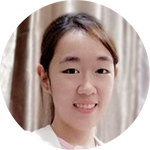
Hui Wern Khaw
Master of Public Health , 3rd Year, Adventist International Institute of Advanced Studies, Malaysia
Short Biography
I am born and bred in Penang, Malaysia. I work as a community nutritionist with more than 6 years of working experiences in public health industry. I strongly believe imparting awareness and knowledge to public are fundamental in disease prevention. Such belief motivates me to learn continuously and to dedicate myself in the fields of health education and promotion. I am actively involved in the effort for obesity prevention through different programs and webinars at both corporate and school setting.
Why did you need the sponsorship?
Malaysia has given limited opportunities, resources and support to public health professionals for career development and knowledge exchange. I hope with this sponsorship, I can come to UBC, a prestigious institution, to learn about successful methodologies from developed countries and hopefully I can adopt some of the strategies in my work, bringing community health in Malaysia to next higher level.
What will you present at TUFH 2022?
I am going to have an oral presentation with title Healthy School Community – A Peer Training Project for the Prevention of Childhood Obesity. Malaysia being the fattest country in Southeast Asia, I hope to acquire new inputs of the relevant field from multidisciplinary experts across the globe. I wish to widen my network of same interest, thereby transfer new ideas and insights back to my local community.
Oral Presentation TUFH1050
“Healthy School Community” – A Peer Training Project for the Prevention of Childhood Obesity
“Healthy School Community” project was designed to empower and inspire school children to become leaders who can disseminate the fundamentals of a healthy diet and lifestyle to their peers. This project was aimed to combat the rising prevalence of childhood obesity in Malaysia. School children aged 10-12 years old from four primary schools were engaged for anthropometric measurement and health education. Height, weight, BMI measurement and obesity awareness talk took place in each school. 3D interactive food plate and fortune wheel were set up as health corner at each school. A training camp was conducted to empower health leaders. The activities included health talk, exercise competition, healthy burger workshop and sharing on health leaders’ roles. A survey was given to students for project evaluation. In total, there were 744 students screened for their anthropometric, averagely 26.4% of them were overweight and obese. There were 50 students joining the training camp. By the end of the training, majority (82%) rated health talk as the most insightful activity, which delivered knowledge about healthy lifestyles. 35% responded that they are willing to exercise for at least 1 hour a day and 33% responded that they will sleep for 8 hours a day. 68.6% understood their roles as health leaders and agreed to execute this role in their schools. Positive feedback from the participants indicates that health knowledge can be effectively delivered through fun activities and workshops. Future follow up with the health leaders is needed for evaluating the effectiveness of the project.

Priyanka Chahal
General Medicine, 4th Year, S. Tentishev Asian Medical Institute, Kant, Kyrgyzstan
Short Biography
Priyanka Chahal, is a 4th year med student studying in Kyrgyz Republic. She is an avid Volunteer and a Global Health enthusiast with keen interest in Universal Health coverage, health system governance, SDGs, Health policies, advocacy, and leadership. Currently she is serving as European Regional Representative at SNO (Student Network Organization).
Why did you need the sponsorship?
Being from Countryside, for me Education was a dream that gave me the power to fly high and allowed me to explore my true potential. But I always face financial hardships at every corner of my life and was needing sponsorship to attend TUFH 2022. This opportunity will help me to grow more both in personal and professional ways.
What will you present at TUFH 2022?
As the Conference theme says, “Moving Forward together: Unity for health for all”, and I Believe by attending TUFH 2022 I will move forward together with Great minded people in the field of Global Health, by utilizing my acquired skills and knowledge. I am going to present an Oral presentation on the topic “Role of Telemedicine on Healthcare Delivery amidst Epidemic and Pandemic on Indigenous people in LMICs”.
Oral Presentation TUFH1009
Role of Telemedicine on Healthcare Delivery amidst Epidemic and Pandemic on Indigenous people in LMICs
Background In the era of pandemic Vulnerable populations of LMICs and minorities get affected by COVID-19 in a broad range, due to limited mitigation capacity, high prevalence of chronic conditions, inequitable spread of COVID-19 due to dense population and poor health system. Telemedicine has provided sustainable approach and solutions for quality healthcare. Methods The five Searching databases PubMed, Scopus, Embase, Web of science and science Direct have been used to conduct this Research. This research was conducted through searching five databases including PubMed, Scopus, Embase, Web of Science, and Science Direct. Inclusion criteria and included studies clearly defines any use of telehealth services in all aspects of health care during COVID-19 outbreak among indigenous people, published from December 31, 2019, in peer reviewed journals. The papers were independently assessed search results, extracted data, and assessed the quality of the included studies. Critical Appraisal Skills Program (CASP) Checklist is used for Quality assessment. Results It is found that Telehealth facilitates the triage without overwhelming the front-line providers, supplying of clinical services when local clinics and hospital are unable to meet demand in pandemic. Conclusion Provision of health services has been improved using Telehealth. Telehealth should be an important tool in caring services while keeping patients and health providers safe during COVID-19 outbreak. Telehealth can meet the health needs to the highly marginalized Indigenous people in LMICs. however, more research is needed to acknowledge the structure and delivery of Telemedicine for its maximum effect.

Richard Buule
Bachelor of Medicine and Bachelor of Surgery, 4th Year, Kampala International University, Uganda
Short Biography
Richard Buule is the 3rd born of 5. With 3 sisters and 1 brother. Pursuing a bachelor of medicine and surgery at Kampala international university, Uganda. I am the president of student network organization Uganda, Class president, campus ambassador for patient-centered care movement Africa KIU, Vice president of Walter E dandy neurosurgical club Uganda and the founder of sunny smiles initiative Uganda. I am an arsenal football club fun .my hobbies are adventures, road trips, reading, and watching movies
Why did you need the sponsorship?
I am an ambitious man with positive energy to change and make the world a safe place for everyone, and I am sure that can’t be made manifest singly. I have always had ideas but the avenue to emit them hinders me or sometimes emit them to the wrong audience. That being said, I always wanted to attend TUFH conferences as a way of making such dreams come to pass but the truth is that I have always lacked resources, so this is my dream come true.
What will you present at TUFH 2022?
I am going to present an abstract on Breast Cancer Self Screening by Female Undergraduate Students and how to empower Adolescents with knowledge on Menstrual Hygiene in Uganda. I hope to interact, learn, present, and network with a vast number of health personnel worldwide. The mere exposure will be a sparkle to the world of research, interaction, and a big network. I am sure that after the conference, I won’t remain the same knowledge-wise and network wise
Oral Presentation TUFH870
Breast Cancer Self Screening by Female Undergraduate Students in Uganda
Background: The incidence rates of breast cancer over the past 20 years in Uganda have nearly doubled leading to a high prevalence. This study intended to assess the level of awareness of breast cancer amongst female university students. Methods: Descriptive cross-sectional study among female students between July 2016 and May 2017. Proportionate randomly selected participants from all the eight academic units at the University were selected and subjected to a self-administered questionnaire designed to determine their level of knowledge and awareness of breast cancer. Results: Of the 212 participants, the majority (51.7%) were between 21 and 25 years. The majority (92.8%) had heard about breast cancer and their main source of information were friends. 12.9% had a positive family history of breast disease. 55% had heard about the self-breast examination, but only 60.9% of those could perform it and only 19.6% knew how often it needed to be done. The majority (98.5%) supported the inclusion of regular clinical breast examination in routine clinical evaluation. 59.3% would consent to mastectomy in case of breast cancer eventuality. Only 10.5% had ever screened their breasts for any form of breast disease and 95.7% identified hospitals as points of care. Awareness and knowledge about breast disease were low with 0.96% of respondents very aware,16.27% moderately aware and 82.77% not aware. There was a significant relationship between awareness with age, faculty, nationality & number of children. Conclusion: The study showed that participants had little knowledge about breast disease and the need for self-screening. To catch breast cancer in the early stages and improve the national women’s health, there is a need to increase the knowledge on breast cancer and self-screening among female university students and potentially amongst the entire female population. Screening leads to early detection and good health outcomes. Let us strive towards the global incorporation of self-screening by women for breast cancer regularly!
TUFH Talk TUFH851
Project for empowering Adolescents (10-19) with Knowledge about Menstrual Hygiene Management in Uganda
Menstrual hygiene is fundamental to the dignity and wellbeing of women and girls and an important part of the basic hygiene, sanitation, and reproductive health services to which every woman and girl has a right. Currently, the means of coping for girls is the use of old clothes, dirty napkins, leaves, sitting in mud and other un-hygienic materials. This project aims at increasing awareness about menstrual hygiene practices, teaching them how to make reusable sanitary pads and provision sanitary materials to the rural and refugee camp adolescent girls (10-19) in Uganda. Our mission is to ensure increased adolescent engagement and understanding of best practices for menstrual hygiene among girls. It targets adolescent girls (10-19 years) in all remote regions of Uganda. Activities of this project include distribution of pads, awareness creation, and demonstration about making reusable pads among others which will be implemented by the project coordinators.
Girls encounter problems like inadequate preparations for young girls not yet experiencing menstruation, lack of inadequate water to clean and wash their bodies, lack of materials for menstrual hygiene, no private space and washrooms and inappropriate facilities for disposal of used pads. over 60% of the girl pupils absent themselves from school during their menstruation leading to low attendance. Whereas menstrual hygiene is a national problem, girls in villages are disproportionately affected.
We have just started implementing this project.
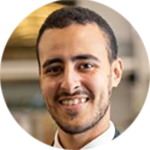
Saad Uakkas
Masters’ Public Health, Final Year, London School of Hygiene and Tropical Medicine, Morocco
Short Biography
I am an international trainer, TEDx speaker, Diana award winner, One Young World ambassador, UNESCO young researcher, WHO infodemic manager, Clinton global initiative fellow, and Chevening scholar. I had leadership positions representing youth in 56 global meetings. I organized 30 campaigns, and events both in-person and online. I occupied leadership positions for 3 years in the international federation of medical students’ associations IFMSA and led global youth health campaigns.
Why did you need the sponsorship?
As I am close to finishing my masters’ degree, I hope to continue my public health journey and involvement in programs implementation to serve vulnerable communities. Attending TUFH in-person for the first time will allow me to share my passion and dreams, and identify my next steps in life, the thing I could never do without the scholarship
What will you present at TUFH 2022?
I look forward to share about my experience on interprofessional education and collaboration, as well as Antimicrobial Resistance and COVID-19 control. Attending TUFH will also allow me to connect with professionals on planetary health and community involvement, see potential work and involvement possibilities, and identify emerging themes and discussions for future research and action.
Oral Presentation TUFH1128
COVID-19 vaccine equity between optimistic global promises and nationalism realities
With large swathes of the world’s population still yet to receive a minimum of two doses of the COVID-19 vaccine; The need to address the failures of international solidarity to equitably distribute COVID-19 vaccines is urgent to curb the pandemic and prevent future variants. However, many high-income countries have adopted a “me first” approach, proceeding to offer COVID-19 booster doses to their entire populations, whilst the rest of the world is left unvaccinated or partially vaccinated for even their most vulnerable communities. Initiatives launched to combat vaccine inequity such as the Fair Allocation Framework for the COVID-19 Vaccines (COVAX) have been unsuccessful as several governments, primarily from high-income countries, have scaled down their contributions to the initiative. Furthermore, COVAX has not seriously engaged with the Access to COVID-19 Tools Health Systems Connector, as was originally intended, leading to crucial health systems components critical to vaccine delivery being overlooked. Several strategies can be employed to help achieve the desired immunization goals, such as Intellectual Property waivers, increased donations, and activation of new COVID-19 vaccine manufacturing hubs. In addition, continued advocacy for vaccine equity by all involved and affected stakeholders, as well as critical amendments to existing or upcoming legislation and funding mechanisms will help address the shortcomings of current inequitable vaccine distribution. Global solidarity and collective action through pandemic governance mechanisms are urgently needed to ensure vaccine equity. These interventions are vital to mitigate ongoing crises and ultimately curb the pandemic.
Oral Presentation TUFH1113
Antimicrobial Resistance and One Health in the Post COVID-19 Era: What should Health Students Learn?
Antimicrobial resistance (AMR) is a critical worldwide health issue that jeopardizes our ability to fight illnesses. However, despite being a natural phenomenon, AMR is exacerbated in the world by inappropriate administration of an antimicrobial medication such as under-use or overuse by the general population, farmers, and various health professionals. The onset of the COVID-19 pandemic has put the world in a shocking state. The pandemic exacerbated the problem of antimicrobial resistance, which was largely caused by irrational off-label use of antivirals, anthelmintics, antimalarials, and, most notably, macrolide antibiotics. As a result, monitoring the AMR progression during the pandemic has been critical. The One Health Approach is progressively becoming the most widely utilized and recommended approach in the ongoing fight against AMR. The aim of this article is to address the lack of teachings in AMR and the One Health Approach in health student training curricula, as well as to provide recommendations that can be implemented as we progress beyond the COVID-19 era. We will be sharing a framework for health students, professionals, and educators to optimize One Health and AMR education. This includes components to be included such as interprofessional education and relating One Health to clinical education, as well as steps and actions to implement those components, such as student-led advocacy campaigns, competitions, peer education, sessions.
Workshop TUFH1113
Interprofessional and Intersectoral Collaboration for Young Health Workers and Students, from Challenges to a Comprehensive Framework
Young health students and professionals can take the lead on initiating and institutionalizing interprofessional education and collaboration. They also need to learn about intersectoral collaboration as a strategy to address health from a holistic perspective and affect different health determinants both on the preventive and curative sides.
The workshop will have two parts, the first one will help participants realize the importance and added value of adopting interprofessional education and collaboration, explain both concepts and differentiate between them, then share a framework with steps to follow to initiate and sustain an effective interprofessional and intersectoral collaboration for young students and professionals. Experiences and best practices will be shared including the first-ever global interprofessional education competition and the global interprofessional education campaign conducted jointly by 5 global student organizations.
The second part will introduce intersectoral collaboration and its added value to address health from different perspectives. We will reflect on different health issues whereby intersectoral collaboration can be applied. We will then share recommendations and steps to follow to ensure a productive and sustainable collaboration.
JOIN THE NETWORK: TUFH
Come unite with global health leaders, capturing their passion, and an ongoing commitment for global equitable health. Join the Network: TUFH as an institutional or individual member.
QUESTIONS?
Please contact us with any questions or inquiries and we will respond as soon as possible.
Email: secretariat@thenetworktufh.org
